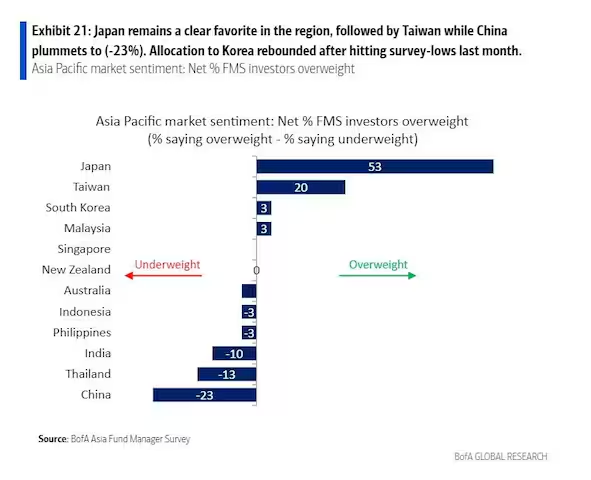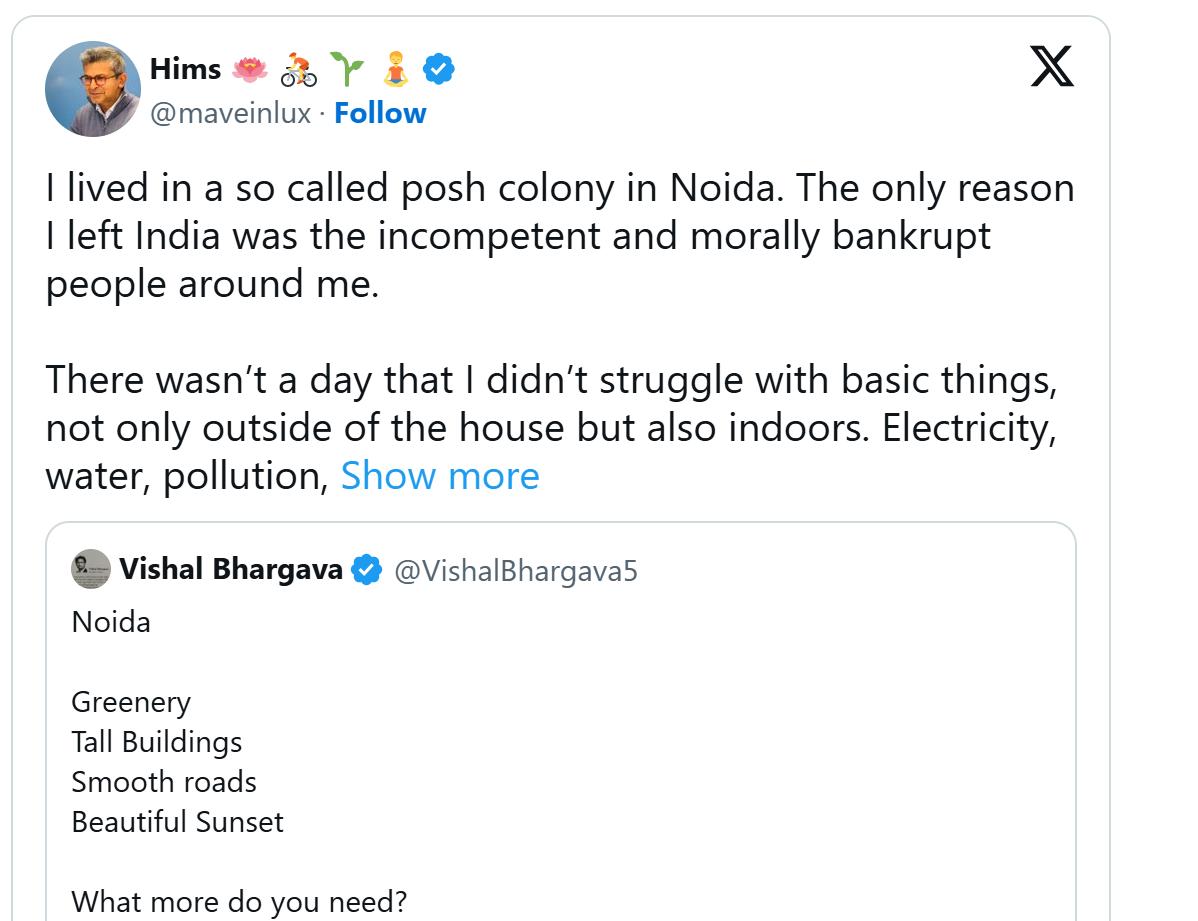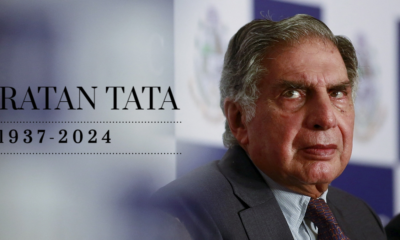Business
India among top 3 least favoured Asian stock market amid multiple headwinds

On an overall basis, global fund managers expect less than 5 per cent return from Asia ex-Japan stocks in the next one year, BofA Securities’ survey findings suggest.
India is among the top three least favoured Asian stock markets, according to a recent note by BofA Securities, with 10 per cent of the fund managers surveyed by the research and brokerage house remaining underweight on Indian equities from a 12-month perspective.
On an overall basis, global fund managers expect less than 5 per cent return from Asia ex-Japan stocks in the next one year, BofA Securities’ survey findings suggest.
182 panelists with $513 billion worth of assets under management (AUM) responded to the global fund manager survey (FMS) questions, BofA said, while 111 panelists with $214 billion worth of AUM responded to the regional FMS questions between January 10 and 16.
Only China (with a net 23 per cent fund managers) and Thailand (13 per cent) are the other two Asian regions where fund managers are more underweight as compared to Indian equities, survey findings suggest.
In China, investor patience is being put to test yet again, BofA Securities said, as the sharp rally in September failed to hold on to the gains.
“Unsurprisingly, growth optimism faded further, with net 10 per cent expecting the economy to strengthen, down from net 61 per cent in October. Structural bearishness calls shot up to near survey-highs, while allocations nosedived to near survey-lows. FMS thinks that cash hoarding by households is here to stay, while less than 25 per cent are comfortable adding exposure on further signs of easing,” BofA Securities said.
Japan, on the other hand, was the most preferred region within Asia where a net 53 per cent of the respondents / fund managers remained overweight, followed by Taiwan (20) and South Korea (3).
“The optimism on Japan remains unscathed, as 20 per cent of the participants surveyed by BofA expect double-digit return from equities in the next 12 months,” BofA said.
Tepid 2025
Those at BNP Paribas Securities, too, see a tepid 2025 for Indian equities and expect returns to remain in single digits in the next one year.
While high-frequency indicators in India are showing signs of bottoming out, analysts at BNP Paribas Securities see other headwinds (high food inflation, high US bond yields, rising dollar index and firming up commodity prices) that are likely to keep the market sentiment in check for most part of the year.“The appetite for buying expensive emerging market equities should remain low, unless there are signs of a strong recovery in growth. Strong domestic inflows continue to support the Indian equity market, and we do not see any major risk to this. We see low likelihood of valuation multiples rerating in 2025 and expect market returns to track or slightly lag earnings growth,” wrote Kunal Vora, head of India Equity Research at BNP Paribas India in a recent note.
APAC markets
APAC ex-Japan economic outlook, according to the BofA, stayed at its second-weakest level in two years, with net 3 per cent of the participants seeing a weaker economy 12 months out versus net 39 per cent seeing a stronger economy in November.“The bearishness on the economy rubbed off on return expectations with a majority expecting less than 5 per cent returns in the APAC ex-Japan equities in the next 12 months,” BofA Securities said.
Semiconductors dominate the regional sector allocations, the survey findings suggest, followed by increasing allocations to banks and consumer staples, while real estate and materials lag.
“AI/semis, dividends/buybacks and internet are favorite China themes while in India, IT services, a beneficiary of the falling rupee, jumps to the top with infra coming next,” BofA Securities said.
Business
ShapoorjiPallonji group inks record $3.4 billion private credit deal

The three-year, zero-coupon rupee bond has an annual yield of 19.75 per cent. Proceeds will primarily be used to refinance existing debt
Real estate and construction conglomerate Shapoorji Pallonji group signed a $3.4 billion private credit deal, a person familiar with the matter said, marking the biggest of its kind in the country.
The three-year, zero-coupon rupee bond has an annual yield of 19.75 per cent. Proceeds will primarily be used to refinance existing debt.
The company inked the deal with the trustee, according to the person. The money is likely to flow from lenders in the coming days, the person added.
The financing is a landmark in India’s growing private credit industry, which is getting a boost as Prime Minister Narendra Modi’s infrastructure push increases funding demands for everything from solar power to roads.
That’s fuelled a burst of competition among foreign and local investors. KKR & Co, Oaktree Capital Management and Goldman Sachs Group Inc are among the foreign firms expanding in the market.
Local players are launching araft of funds, with Kotak Alternate Asset Managers Ltd planning a $2 billion fund. Shapoorji has evolved into a family-run construction behemoth, building skyscrapers, landmarks and complex infrastructure.
Its portfolio includes the country’s central bank and the Al Alam palace for the Sultan of Oman.
About a dozen large investors, including Ares Management Corp, Cerberus Capital Management LP, Davidson Kempner Capital Management, and Farallon Capital Management were participating in the Shapoorji deal, people familiar with the matter had previously said. Deutsche Bank is also investing, and acting as the sole arranger and the trustee.
A representative for the company didn’t respond to requests for comment outside of normal business hours. The deal comes at a busy time for Indian debt markets.
Billionaire Mukesh Ambani-owned Reliance Industries has obtained a $2.98 billion-equivalent loan, according to people familiar with the matter, the largest such deal for an Indian borrower in more than a year.
Business
‘Noida is a hell’: Investor shares why he quit India to live in Luxembourg

Himanshu Upadhyay, now based in Luxembourg, says poor infrastructure, social decay, and safety fears pushed him to leave India despite living in a ‘posh’ locality
Himanshu Upadhyay, an investor and president of the Indian Business Chamber of Luxembourg, recently shared on social media that he had relocated abroad due to “safety concerns” and deteriorating living conditions in India. Speaking about his experience living in a gated community in Noida, Upadhyay cited issues such as corruption, pollution, and unreliable water and electricity supply as key factors behind his decision.
“No matter how many tall buildings and trees Noida has, it’s still a hell,” he said.
‘Morally bankrupt environment’ prompted move abroad
Upadhyay, who has over two decades of professional experience in markets across Europe, Southeast Asia, and the Pacific, said that despite living in a “so-called posh colony” in Noida, the day-to-day reality was far from comfortable.
In a post on X, Upadhyay wrote, “I lived in a so-called posh colony in Noida. The only reason I left India was the incompetent and morally bankrupt people around me… Electricity, water, pollution, neighbours, commuters. Everyone seemed to be always angry and frustrated, ready to kill.”
He further alleged that even well-educated people in his neighbourhood were involved in corrupt practices, citing electricity theft as one example.
Upadhyay’s comments came in response to a user who praised the quality of life in Noida. While many users agreed with the investor’s assessment, others defended the city’s infrastructure and amenities.
When challenged by a Noida resident who said he hadn’t faced any of the problems mentioned, Upadhyay responded, “So you are telling me that there are cities in India where people are morally sound, ethical, with no fights over parking, no road rage, no corruption, no disruption in water and electric supply, no pollution and everyone using common sense?”
‘I didn’t want my children raised in that environment’
Despite his affection for the country, Upadhyay explained the surrounding social atmosphere was not conducive to raising a family. He added that India’s deep-rooted issues could take “two generations” to resolve.
On whether life in the West guaranteed safety and order, he replied, “Largely, and at least I do not struggle with basic things in life and my family doesn’t live in fear.”
Several users agreed with Upadhyay’s comments. A Lucknow-based lawyer supported his view, stating that children should be prepared to move abroad to escape the widespread corruption, pollution, and what he called “fictional caste-based egos” in Indian society.
One user said, “It’s true that on average Indians are more corrupt than people from developed countries. Maybe because their quality of life is already good they don’t need to be venal or maybe Indians have a character defect.”
However, others offered a different perspective. A resident of Noida shared, “I also stay in Noida. Never faced any problem. It’s all about experience. Life is not easy, whether in India or abroad — you have to adapt.”
Another user highlighted the regional disparity within the country, noting, “NCR is not the entire country. Also, no one consider Noida as a moral benchmark and model city. Not even by miles. Explore, and move to other decent places in the country.”
Business
Piyush Goyal asks startups to focus on high-tech areas, not food delivery apps

Highlighting the role of startups in making India a Viksit Bharat by 2047, Piyush Goyal said the country will only get there if Indian startups innovate in robotics, machine learning and automation, and explore technologies like 3D printing to make manufacturing efficient.
Union Commerce minister Piyush Goyal’s recent remarks urging Indian startups to move beyond food delivery and focus on ‘real economic productivity’ like AI, EVs, and semiconductors have triggered a heated debate across the startup ecosystem and tech community.
Speaking at an investment summit in Delhi, Goyal said, “We are making food/hyper delivery apps; creating cheap labour so the rich can have a meal without stepping out, while the Chinese are working on AI, EVs, and semiconductors. Should we make ice cream or chips?”
He also criticised the proliferation of betting apps and questioned whether India’s vast pool of STEM graduates should be creating more delivery jobs. “Are you proud that we are creating delivery boys and girls?” he asked, calling on startups to aim for “deep-tech” innovation that boosts productivity and economic strength.
The remarks sparked sharp responses from several industry leaders.
Zepto co-founder Aadit Palicha took to X (formerly Twitter) to defend consumer startups. “It’s easy to criticise consumer internet startups, especially when you compare them to US/China. But Zepto employs over 1.5 lac real people and pays over Rs 1,000 cr in taxes annually,” he said. Palicha added that Zepto has brought in over a billion dollars in FDI and invested heavily in supply chain infrastructure.
He argued that many globally renowned tech giants like Alibaba started as consumer apps and evolved into deep-tech players. “We must support local champions instead of pulling them down,” he wrote.
Ashneer Grover, former MD of BharatPe, acknowledged Goyal’s intent but reminded that even China’s tech ecosystem began with consumer apps. “China also had food delivery first, then evolved. Maybe time for politicians to aspire for a 10%+ GDP growth rate for 20 years flat before chiding job creators,” he quipped.
Mohandas Pai, former Infosys executive, offered a more critical take. “India does have startups in deep-tech, but they’re small. What has the government done to support them?” he asked. He slammed the finance ministry for being “hostile” and taxing angel investors, and the RBI for discouraging foreign investments.
Pai compared startup investments over a decade, stating: “China invested $845 billion from 2014-24 in startups. India invested just $160 billion. So where is the support?”
While the debate continues to grow, many agree that the dialogue has highlighted the need for a balanced ecosystem—one that encourages both consumer-facing businesses and deep-tech ventures.
Meanwhile, Goyal’s remarks have opened the door to a larger policy discussion about how India wants to shape its innovation narrative in a rapidly changing global tech landscape.
-

 Blog9 years ago
Blog9 years agoThe final 6 ‘Game of Thrones’ episodes might feel like a full season
-

 Tech2 years ago
Tech2 years agoTRAI Introduces New Regulations to Boost Telecom Service Quality and Consumer Compensation
-

 Blog9 years ago
Blog9 years agoThe old and New Edition cast comes together to perform
-

 Blog9 years ago
Blog9 years agoMod turns ‘Counter-Strike’ into a ‘Tekken’ clone with fighting chickens
-

 Blog1 year ago
Blog1 year agoRatan Tata
-

 Business2 years ago
Business2 years agoStrengthening Cyber Defenses: The Crucial Role of System Availability and Resilience
-

 Business9 years ago
Business9 years ago15 Habits that could be hurting your business relationships
-

 Business2 years ago
Business2 years agoGovt May Soften LTCG Tax Blow on Real Estate






